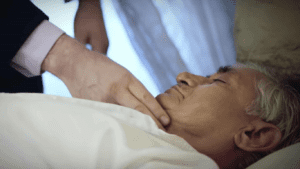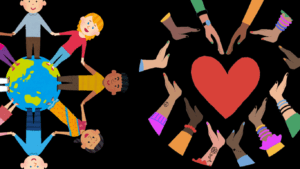Folks have been buzzing about Bill Gates and the World Health Organization for years now, especially since the pandemic hit. Some say they’ve crossed lines that amount to crimes against humanity, like pushing vaccines that harm people or controlling global health in shady ways. These aren’t light accusations; they’re heavy stuff that could mean big trouble if proven. Gates, the Microsoft guy turned philanthropist, pours billions into health through his foundation. The WHO, a United Nations arm, guides countries on diseases and outbreaks. Together, they’ve shaped how the world handled COVID-19, from lockdowns to shots.
But not everyone’s cheering. Critics point to things like vaccine trials in poor countries that went wrong, or claims of population control. On the flip side, fact-checkers and experts say a lot of this is twisted info or outright false. In 2025, with social media full of posts calling for arrests, it’s worth digging in. This piece looks at the background, the charges, the pushback, and what it all means. We’ll stick to facts from reliable spots, like court docs and news reports, to keep it straight. No one’s above the law, but proof matters. Let’s break it down without the hype, using simple talk to see if there’s fire behind the smoke.
Background on Bill Gates and His Ties to the WHO
Bill Gates stepped away from Microsoft in 2000 to focus on giving back through the Bill & Melinda Gates Foundation. It’s one of the biggest charities out there, dumping over $50 billion into health, education, and poverty fights. Gates got into vaccines big time, seeing them as a cheap way to save lives in places like Africa and India. His foundation funds research, buys shots for poor kids, and works with groups like Gavi to get them out there.
The WHO came in as the global health boss, started in 1948 to handle diseases across borders. It’s funded by countries and donors, with Gates’ foundation kicking in about 10 per cent of its budget some years. That makes Gates a top private donor, giving him sway on things like polio eradication or pandemic prep. Events like the 2019 Event 201 simulation, backed by Gates, looked at how to handle a virus outbreak-just months before COVID.
Critics say this setup lets Gates push his agenda, like favoring big pharma over local fixes. Some point to past issues, like a 2009 WHO flu pandemic call that boosted vaccine sales. Gates denies undue influence, saying it’s all about saving lives. But with his money talking loud, questions linger on if it’s charity or control. In places like Kenya, folks protest Gates-funded programs, claiming they hurt fertility. Fact-checks show no solid proof, but the distrust runs deep in communities hit by colonial health experiments.
Key Accusations of Crimes Against Humanity
Crimes against humanity are serious under international law, like widespread attacks on civilians through murder, torture, or enslavement. Accusers say Gates and WHO fit this by pushing harmful vaccines and policies. One big claim: during COVID, they forced experimental shots that caused deaths and injuries. Social media posts call it premeditated murder, pointing to side effects like heart problems.
In Africa, groups accuse Gates of using people as guinea pigs. A Kenyan court in 2025 suspended his immunity, letting locals sue over vaccine harms. Posts say vaccines dropped fertility, linking to old trials where tetanus shots had anti-pregnancy stuff—though WHO denied it. Another angle: Gates’ talk on population growth. He once said better health cuts birth rates, but clips get twisted to sound like he wants billions dead.
WHO faces heat for lockdown advice that wrecked economies and mental health, seen as inhumane. Critics tie this to Gates’ funding, saying he profits from pharma investments. A 2024 Dutch lawsuit by vaccine skeptics accused Gates of misleading on COVID shots’ safety. Though dismissed, it fueled calls for trials at places like the Hague. These claims spread on X, with users sharing memes of Gates as a villain. While passionate, many lack court-level evidence, relying on anecdotes over data.
Vaccine Programs and Alleged Harm in Developing Countries
Gates’ foundation has vaccinated millions against diseases like measles and HPV, but not without backlash. In India, a 2009-2010 HPV trial funded by Gates led to deaths among girls; families blamed the shots, though probes said unrelated illnesses caused them. Still, a parliamentary report slammed poor consent and ethics, calling it a violation.
In Africa, polio vaccines from the WHO and Gates sparked rumours of sterilization. A 2014 Kenyan Catholic group tested samples and claimed HCG hormone made women infertile- WHO called it false, saying no such thing in vaccines. But trust eroded, leading to boycotts and disease spikes. Posts on X from 2025 say this was deliberate depopulation, citing Gates’ TED talk on reducing population through health.
Fact-checks from Reuters and AFP debunk these, showing no evidence of harm or intent. Yet, real issues exist: a 2017 WHO vaccine in Kenya had side effects, and Gates admitted learning from mistakes. Critics argue testing on poor kids without full info is a crime, echoing Nuremberg codes against non-consent experiments. With billions vaccinated, rare harms get amplified online, painting Gates and WHO as reckless or worse. The debate boils down to if good intentions excuse bad outcomes in vulnerable spots.
The COVID-19 Response and Claims of Manipulation
When COVID hit, WHO declared a pandemic, and Gates pushed for quick vaccines. Accusers say they hyped fear to mandate shots, committing crimes by ignoring risks. Event 201 gets called a blueprint for control, not prep. Gates’ investments in Moderna and Pfizer raised eyebrows-did he profit from the crisis he helped shape?
Lockdowns, backed by WHO, are labeled inhumane, causing suicides and hunger in poor nations. A 2023 FactCheck.org piece debunks claims Gates planned it all, but X users share clips of him predicting pandemics. The “Plandemic” video accused Gates of engineering the virus; USA Today called it false.
In 2025, Philippine posts claimed an arrest warrant for Gates over vaccine murders-fact-checks say no such court exists. Dutch suits alleged misinformation on shot safety, but courts tossed them. Gates defends: his work saved lives through fast vaccines. Critics counter with excess deaths data, blaming jabs. The truth? Vaccines cut fatalities, per studies, but side effects hit some hard. Whether that’s criminal depends on intent-negligence or plot? Juries aren’t in yet.
Population Control Theories Linked to Gates
Gates’ 2010 TED talk on cutting carbon by lowering population sparked theories he’s for depopulation. He meant better health and education lead to fewer kids, not killing folks. But edited clips make it sound sinister, fueling X rants about eugenics.
His foundation’s family planning pushes contraceptives in Africa, seen by some as forced sterilization. A Reuters check found no evidence Gates said “3 billion need to die.” Still, old partnerships with groups like Planned Parenthood tie him to controversial figures.
In 2025, African leaders like Kenya’s spoke against WHO treaties, fearing control over bodies. Posts claim Gates funds蚊子 that spread sterility-actually, it’s modified bugs to fight malaria. Fact-checks from BBC clarify, but distrust lingers from colonial times.
Gates says his goal is equity, helping poor families choose family size. Critics see it as rich white guy meddling. No court has charged him, but the narrative paints him as playing God. It’s a mix of misquotes and real power concerns-who decides global birth rates?
Financial Conflicts of Interest
Gates’ foundation invests in pharma while funding WHO programs, creating conflict claims. He owns stakes in vaccine makers, profiting from shots he promotes. A 2023 New Statesman piece questioned if his philanthropy masks business.
During COVID, foundation grants to media and health groups raised bias worries. Tim Schwab’s book calls it “philanthrocapitalism,” where charity boosts influence. X users say this lets Gates dodge taxes while controlling policy.
Fact-checks note the foundation discloses investments, and profits go back to charity. But a 2025 Substack on Gates’ ties to Israeli firms amid Gaza drew genocide profit accusations-unproven, but ethically murky.
WHO relies on Gates for 12 percent funding, some say compromising independence. A Golden Gate Law review on NGO accountability highlights healthcare harms without oversight. Gates argues transparency fixes issues. Yet, when billions flow, questions on if it’s aid or agenda persist.
Legal Actions and Attempts to Prosecute
Attempts to sue Gates and WHO pop up, but few stick. A 2024 Dutch case by skeptics accused fraud on COVID shots; court dismissed for lack of standing. In Philippines, posts claimed warrants for murder-FactCheck.org says fabricated.
Kenya’s 2025 court ruling lifted Gates’ immunity, allowing suits over alleged vaccine harms. No conviction yet, but it’s a win for plaintiffs. ICC probes into COVID policies exist, but not targeting Gates directly.
X buzzes with calls for Hague trials, citing Nuremberg for experiments. A Reuters fact-check debunks Washington Post arrest stories. Gates’ team calls them hoaxes. Real barrier: immunity for officials, though crimes against humanity can pierce it.
A 2000 AMA journal on war crimes mentions medical ethics, but no link to Gates. Success depends on evidence-anecdotes vs. data. So far, no major wins, but pressure builds in places hit hard by policies.
Defenses and Fact-Checks Against the Claims
Gates and WHO push back hard. Fact-checkers like Snopes and AFP label most accusations false. Microchip theories? From misread patents on tracking, not implants. Arrest warrants? Hoaxes.
Gates’ foundation saved 122 million lives per studies, through vaccines and bed nets. WHO credits him for near-polio eradication. A BBC piece explains conspiracy roots in his wealth and visibility.
On population, Gates clarifies it’s empowerment, not control. FactCheck.org debunks “Plandemic” claims of profiting from viruses. Experts say criticisms ignore context- like testing in poor areas because diseases hit there.
X counters with defenses, but conspiracy posts dominate. Gates admits mistakes, like slow Ebola response, but denies malice. The narrative: he’s a nerd helping, not villain. Balance comes from diverse sources, assuming media bias.
Impacts on Public Trust and Global Health
These claims erode trust in health systems. Vaccine hesitancy rose post-COVID, with WHO blaming misinformation. In Africa, polio cases spiked from boycotts tied to Gates rumors.
Politically, it fuels anti-globalist views, like rejecting WHO treaties. A 2025 X trend saw calls to defund WHO over “crimes.” Gates’ image suffered, with books like Schwab’s criticizing power.
Positively, scrutiny led to better transparency – the foundation now details grants more. But harms linger: delayed aid in crises from distrust. For everyday folks, it’s confusing-who to believe? Impacts hit the poorest hardest, where health gains reverse.
In 2025, with new pandemics looming, rebuilding trust matters. Claims, even unproven, spark needed debates on ethics and accountability.
Broader Implications for Philanthropy and International Organizations
Gates’ model of billionaire philanthropy raises questions: should one man shape global health? Critics say it undermines democracy, with unelected influence. A Law review calls for NGO oversight to prevent harms.
WHO’s donor reliance highlights issues-should private money steer public policy? Reforms push for more government funding. Gates’ case shows pros: fast action on neglected diseases. Cons: potential conflicts.
In 2025, movements demand audits of foundations. X discussions tie to wider inequality-rich deciding for poor. Implications: tighter rules on donations, or bans on pharma ties. It challenges how we do good globally, balancing speed with fairness.
Conclusion: Weighing the Evidence
Summing up, claims against Gates and WHO range from wild to worrisome. No court has convicted them of crimes against humanity, with most accusations debunked. Yet, real concerns on ethics and power persist. Gates’ work saved lives, but methods sparked backlash.
Evidence leans toward good intent with flaws, not malice. For truth, look beyond memes to facts. As debates rage, accountability matters. If wrongs occurred, proper channels should handle it, not vigilante calls. In a divided world, questioning power is healthy, but so is fairness.
FAQs
What are the main accusations against Bill Gates and the WHO?
Claims include pushing harmful vaccines, population control, and profiting from pandemics, seen as crimes against humanity.
Has Bill Gates been arrested for these crimes?
No, fact-checks show no valid arrest warrants or indictments against him.
Does Bill Gates want to reduce the world’s population?
He advocates for better health to naturally lower birth rates, not through harmful means; claims otherwise are distortions.
What role does Gates play in the WHO?
His foundation is a major donor, funding about 10 percent of WHO’s budget for health programs.
Are there ongoing legal actions?
Some suits exist, like in Kenya and the Netherlands, but most have been dismissed or lack strong evidence.
How have these claims affected global health?
They’ve increased vaccine hesitancy and distrust, potentially reversing gains in disease control.




